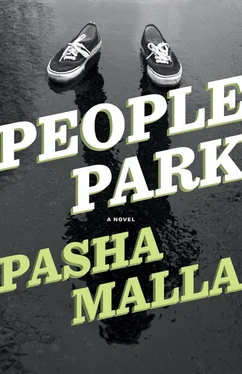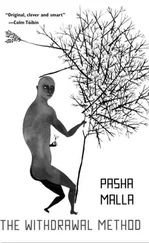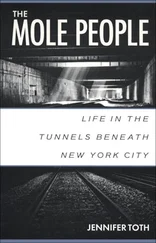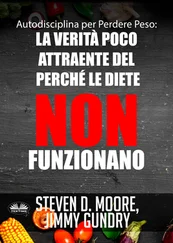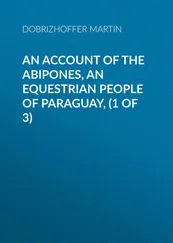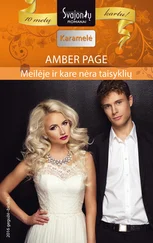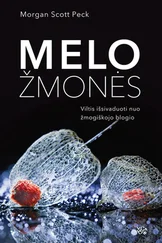Tied one what on, Dad? said Elsie-Anne.
Never you mind, Annie.
Should we untie her?
No.
Elsie-Anne, looking worried, pulled her purse over her head.
Along with Raven’s Illustrations: A Grammar Kellogg packed Gip’s knapsack with a blanket, snacks, juice, meds, sunscreen, mosquito repellent, a first-aid kit, a book of crossword puzzles, and waterproofs (the sky was cloudless), the guidebook got tucked in his backpocket. Then he wrote Pearl a note, wedged it under a pot lid on the picnic table, and told his kids, Okay, guys, Mummy’ll just have to meet us when she’s up. Annie, take that bag off your head, we’ve got to walk now.
His daughter emerged blinking. Familiar’s concerned about Mummy.
Dorkus, will you please shut up , Gip said. Mummy just got tied up. It’s not a big deal.
Shut up, Stuppa.
Mummy’s fine, said Kellogg. Though let’s not call each other names, huh?
Gip shouldered his knapsack, so stuffed the zipper puckered.
Kellogg looked at the tent. We’re doing the right thing, right, guys?
We’re doing the right thing, Dad, said Gip.
Oh, you think so, champ? Good. I think so too. I mean, ideally we’d all be together, but — she’ll meet up with us soon. Mummy, I mean. Right?
Right.
Okay! To People Park! Annie, come here, take my hand. And stop looking in your bag, you’ll fall down, you’ve got to watch where you’re going.
Here we come, Raven, said Gip, then deepened his voice: For tonight’s illustration will surely be a spectacle for the ages, one which nary a soul will soon if ever forget.

POP WAS TOO big for the couch, he’d opted for the floor, and there he was, right in the middle of the living room, a blanket clung to him like giftwrap, from his face came that sinusitic scraping. His clothes were everywhere, jeans draped over the recliner, a sock on the kitchen counter, another inside a stray teacup, the pale dead moth of his underwear splayed on the endtable — this Debbie’s eyes raced away from, a brownish tinge to the white cotton — and, by the door where he’d flung it the night before, his poncho, while in the closet dangled empty hangers. A high whiny fart arpeggiated a minor-C triad, Pop rolled onto his side, from within the sleeping bag came the gritty scritch of fingernails raking pubic hair, and then he was snoring again.
Even more than his sounds and things, it was above all Pop’s smell that had invaded: a musty, tangy odour reminiscent of stale cardboard boxes and humid cheese. Debbie pushed open a window. From outside came the growl of traffic, a train rumbled through Blackacres Station. Across the street, at the corner of E Street and Tangent 3, the owner of the laundrette was scrubbing her windows with a soapy mop: she’d been blackedup in the night.
Pop spluttered, turned, flopped an arm over his head, buried himself in his own body, and kept sleeping: snore, whistle, snore. Debbie edged by him to the bathroom, locked the door, dropped her robe, stepped straight into the shower.
When she emerged ten minutes later in a towel, Pop was at the stove, the element glowed orange beneath a pot of water. This is an alienated stove, he said, not turning to face her. I am habituated of one which flames.
Hang on, I have to get dressed, Debbie said, and slipped past into the bedroom, where Adine was sitting up in bed in her goggles.
Is he still out there.
He’s boiling eggs.
Amazing. We’ve taken in a refugee.
Refugee . You say it like it’s a joke, but that’s what he is. He’s homeless! What are we supposed to do, let him sleep on the street?
I mean, that’s his name, right? If he’d been born, say, Pop Apartment maybe —
Stop that. I need to lend him your housekeys. I mean, if you’re not going out today. .
What.
Come on, said Debbie. Just for the night. Maybe Sunday too. But on Monday we’re going to figure out what’s going on and get him home.
Great, said Adine, flatly.
You okay? said Debbie. She sat on the bed, put her hand on Adine’s leg.
But behind those goggles, it was impossible to tell what was happening.

CALUM JOLTED UPRIGHT, the garbage bags taped over the mattress crinkled. His sleep had been deep and leaden, coming out of it now felt akin to being chiselled from a concrete slab. At some point in the night the Hand must have released him, he hadn’t even stirred — anything could have happened and on he would have slumbered. On her empty side of the bed was only an apostrophe-shaped impression, where her body had curled against Calum’s. The supply closet’s only supply was a headless mop leaning in the corner. The dusty shelves were empty, the air stale, the stripe of light under the door suggested a world Calum wasn’t sure he had a place in.
From somewhere out there came voices, a silent pause, an explosion (of glass?) followed by laughter, cheers, hoots.
Calum unballed the hoodie he’d used as a pillow, pulled it on, then jeans, then sneakers. From beyond the closet came another crash and delighted whoops. He opened the door, light came searing in, he squinted, the swollen eyesocket ached. Everything was quiet. He felt himself being observed.
His eyes adjusted. Sitting on stools in the middle of the silo were two small figures in sunglasses. Near them, on the floor, was a pile of fluorescent tubes, frosted glass pipettes the length and width of saplings. Through the loading dock’s open doors poured water-coloured light, a choir of hoodies lined the threshold. On a couch against the far wall lounged a shirtless guy in a welding mask, the visor reflected the room. Someone lying with their head in his lap sat up — the Hand. Calum waited for a greeting. She yawned and lay back down.
The welding mask leaned in, seemed to whisper in the Hand’s ear.
The Hand laughed, sat up again. With her eyes locked on Calum’s she snuggled close to this shirtless, faceless person. Her fingers splayed around his bellybutton. The thumb snuck into the waistband of his pants.
Calum watched.
From within the mask a voice said, You want to play?
This prompted from the hoodies a squawk of sharp, mean laughter.
The Hand looped her arms around the masked guy’s neck, swung her legs onto his lap. In front of the couch was a table littered with papers and bottles and cans and packs of Redapples, a tin of corn-in-a-can overflowed with butts, burn marks pocked the tabletop. From a paper bag the masked character produced a flat, which he fed to the Hand: her lips caressed his knuckles, her tongue flicked and curled, all wetly pink. She giggled.
Calum looked away.
The kids on the stools seemed about Rupe’s age, faces expressionless behind those sunglasses. They perched with perfect, crisp posture, hands on their knees — ducktaped to their knees. At their feet was broken glass, a few glossy red dots that had to be blood.
The masked guy spread his arms, indicating a space into which Calum was now welcome — or implicated. Ready to take on my sister?
A bout of laughter, brief and dreary, lifted from the figures at the door and dispersed among the rafters like smoke.
The Hand came over, scooped up a fluorescent tube, smacked it into her palm, something inside rattled and tinked. She held another out to Calum, who took it but couldn’t meet her eyes.
The figures by the door crowded in. Their shadows stretched into the room, the light went patchy and sinister. From the couch the guy said, You think you can beat my sister? You know what she did? Last year? You know what this kid did?
Читать дальше
